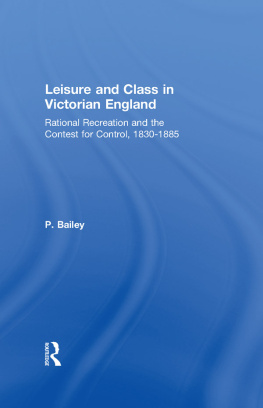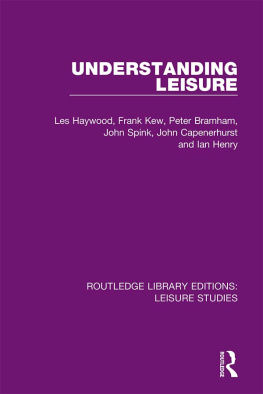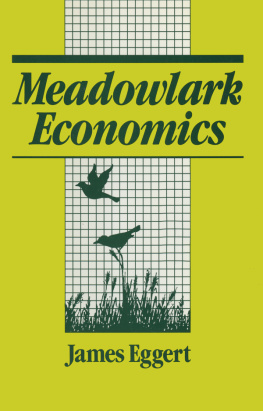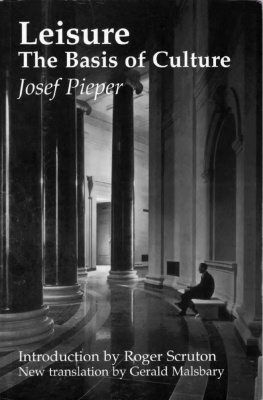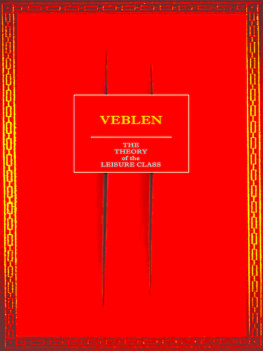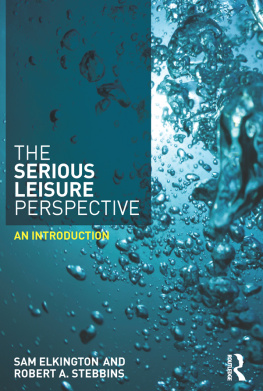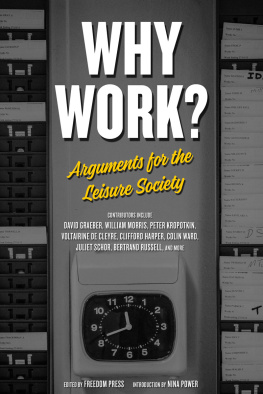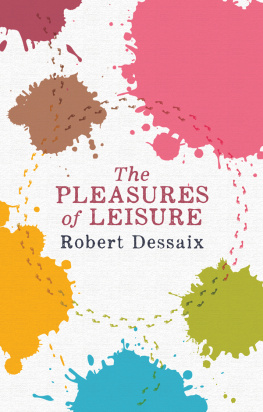
STUDIES IN
POPULAR
CULTURE
General editor: Professor Jeffrey Richards
Already published
Christmas in nineteenth-century England
Neil Armstrong
Healthy living in the Alps: the origins of winter tourism in Switzerland, 18601914
Susan Barton
Working-class organisations and popular tourism, 18401970
Susan Barton
Leisure, citizenship and working-class men in Britain, 18501945
Brad Beaven
Leisure and cultural conflict in twentieth-century Britain
Brett Bebber (ed.)
The British Consumer Co-operative Movement and film, 1890s1960s
Alan George Burton
British railway enthusiasm
Ian Carter
Railways and culture in Britain
Ian Carter
Darts in England, 190039: a social history
Patrick Chaplin
Relocating Britishness
Stephen Caunce, Ewa Mazierska, Susan Sydney-Smith and John Walton (eds)
Holiday camps in twentieth-century Britain: packaging pleasure
Sandra Trudgen Dawson
History on British television: constructing nation, nationality and collective memory
Robert Dillon
The food companions: cinema and consumption in wartime Britain, 193945
Richard Farmer
Songs of protest, songs of love: popular ballads in eighteenth-century Britain
Robin Ganev
Women drinking out in Britain since the early twentieth century
David W. Gutzke
The BBC and national identity in Britain, 192253
Thomas Hajkowski
From silent screen to multi-screen: a history of cinema exhibition in Britain since 1896
Stuart Hanson
Smoking in British popular culture, 18002000
Matthew Hilton
Juke box Britain: Americanisation and youth culture, 194560
Adrian Horn
Popular culture in London, c. 18901918: the transformation of entertainment
Andrew Horrall
Horseracing and the British, 191939
Mike Huggins
Popular culture and working-class taste in Britain, 193039: a round of cheap diversions?
Robert James
Amateur operatics: a social and cultural history
John Lowerson
Scotland and the music hall, 18501914
Paul Maloney
Amateur film: Meaning and practice, 19271977
Heather Noris Nicholson
Films and British national identity: from Dickens to Dads Army
Jeffrey Richards
Cinema and radio in Britain and America, 192060
Jeffrey Richards
Looking North: Northern England and the national imagination
Dave Russell
The British seaside holiday: holidays and resorts in the twentieth century
John K. Walton
Time, work and leisure
Life changes in England since 1700
HUGH CUNNINGHAM
Manchester University Press
Manchester and New York
distributed in the United States exclusively by Palgrave Macmillan
Copyright Hugh Cunningham 2014
The right of Hugh Cunningham to be identified as the author of this work has been asserted by him in accordance with the Copyright, Designs and Patents Act 1988.
Published by Manchester University Press
Oxford Road, Manchester M13 9NR, UK
and Room 400, 175 Fifth Avenue, New York, NY 10010, USA
www.manchesteruniversitypress.co.uk
Distributed in the United States exclusively by
Palgrave Macmillan, 175 Fifth Avenue, New York,
NY 10010, USA
Distributed in Canada exclusively by
UBC Press, University of British Columbia, 2029 West Mall,
Vancouver, BC, Canada V6T 1Z2
British Library Cataloguing-in-Publication Data
A catalogue record for this book is available from the British Library
Library of Congress Cataloging-in-Publication Data applied for
ISBN 978 0 7190 8520 8 hardback
First published 2014
The publisher has no responsibility for the persistence or accuracy of URLs for any external or third-party internet websites referred to in this book, and does not guarantee that any content on such websites is, or will remain, accurate or appropriate.
Typeset in 10/14pt Adobe Garamond
by Graphicraft Limited, Hong Kong
STUDIES IN
POPULAR
CULTURE
There has in recent years been an explosion of interest in culture and cultural studies. The impetus has come from two directions and out of two different traditions. On the one hand, cultural history has grown out of social history to become a distinct and identifiable school of historical investigation. On the other hand, cultural studies has grown out of English literature and has concerned itself to a large extent with contemporary issues. Nevertheless, there is a shared project, its aim, to elucidate the meanings and values implicit and explicit in the art, literature, learning, institutions and everyday behaviour within a given society. Both the cultural historian and the cultural studies scholar seek to explore the ways in which a culture is imagined, represented and received, how it interacts with social processes, how it contributes to individual and collective identities and world views, to stability and change, to social, political and economic activities and programmes. This series aims to provide an arena for the cross-fertilisation of the discipline, so that the work of the cultural historian can take advantage of the most useful and illuminating of the theoretical developments and the cultural studies scholars can extend the purely historical underpinnings of their investigations. The ultimate objective of the series is to provide a range of books which will explain in a readable and accessible way where we are now socially and culturally and how we got to where we are. This should enable people to be better informed, promote an interdisciplinary approach to cultural issues and encourage deeper thought about the issues, attitudes and institutions of popular culture.
Jeffrey Richards
It was in the 1970s that leisure became a major subject of investigation for social historians. One of the most important books to emerge from that interest was Hugh Cunninghams Leisure in the Industrial Revolution c. 1780c. 1880 (Croom Helm, 1980). Returning to the subject thirty years on, he set out to remedy what he now sees as deficiencies in the study of leisure as it was written in the 1970s and 1980s. He singles out in particular the neglect of womens experience of work and leisure, the over-concentration on the eighteenth and nineteenth centuries and the failure to address time-use generally rather than spare time in particular. He also seeks to address the now highly topical subject of worklife balance and the changes in the use and valuation of time over the past three centuries.
Beginning with changes in the perception of time in the eighteenth century and taking in such diverse but related topics as oil lamps, sleep patterns, almanacs, clocks and watches, and the Christian calendar he goes on to consider leisure and class, leisure and gender, leisure preference, and leisure and its critics. Under these broad headings and ever alert to changes in the relationship of work and leisure, he examines the conflict between rational and irrational recreation, the commercialisation of leisure and the emergence of the leisure industries, the attempts of central and local authorities to regulate leisure, the changing shape of the week, the redefinition and extension of childhood and the development of the concept of retirement.


